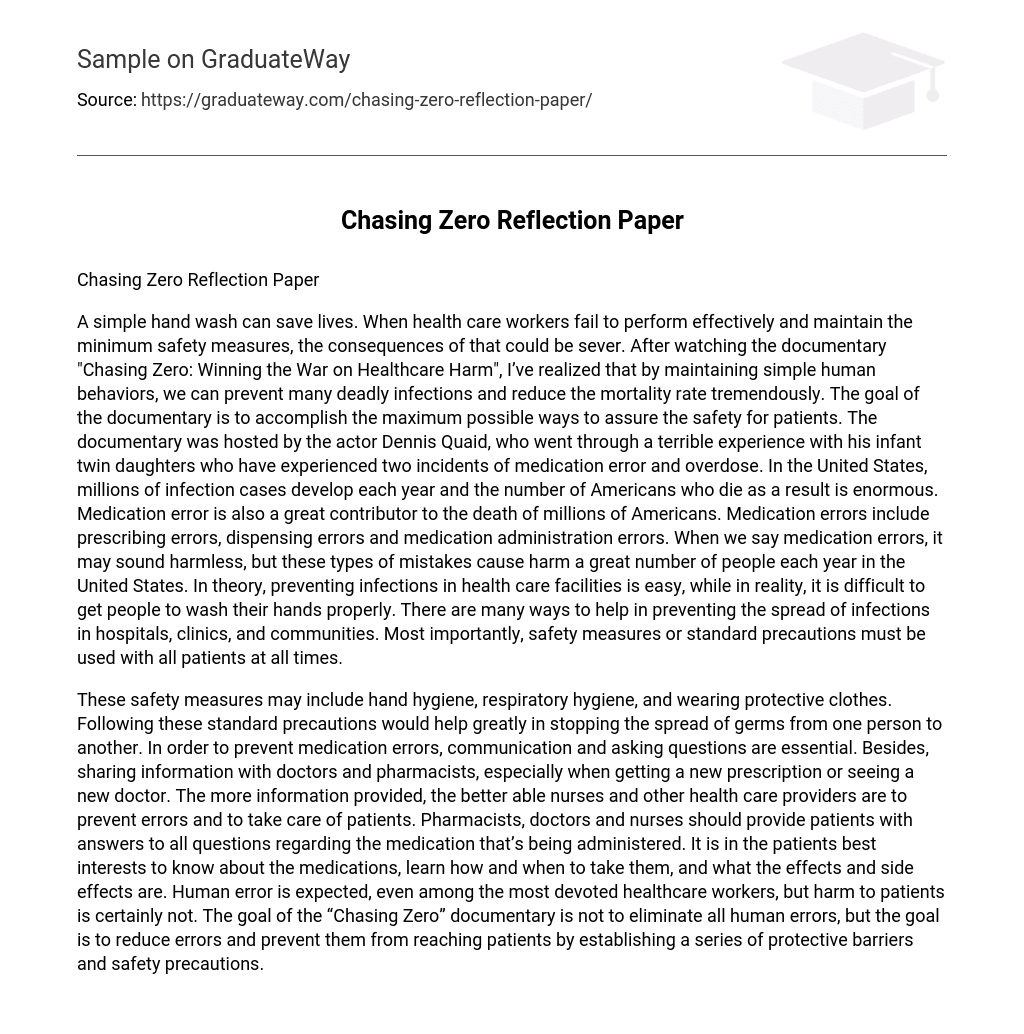A simple hand wash can save lives. When health care workers fail to perform effectively and maintain the minimum safety measures, the consequences of that could be sever. After watching the documentary “Chasing Zero: Winning the War on Healthcare Harm”, I’ve realized that by maintaining simple human behaviors, we can prevent many deadly infections and reduce the mortality rate tremendously. The goal of the documentary is to accomplish the maximum possible ways to assure the safety for patients. The documentary was hosted by the actor Dennis Quaid, who went through a terrible experience with his infant twin daughters who have experienced two incidents of medication error and overdose. In the United States, millions of infection cases develop each year and the number of Americans who die as a result is enormous. Medication error is also a great contributor to the death of millions of Americans. Medication errors include prescribing errors, dispensing errors and medication administration errors. When we say medication errors, it may sound harmless, but these types of mistakes cause harm a great number of people each year in the United States. In theory, preventing infections in health care facilities is easy, while in reality, it is difficult to get people to wash their hands properly. There are many ways to help in preventing the spread of infections in hospitals, clinics, and communities. Most importantly, safety measures or standard precautions must be used with all patients at all times.
These safety measures may include hand hygiene, respiratory hygiene, and wearing protective clothes. Following these standard precautions would help greatly in stopping the spread of germs from one person to another. In order to prevent medication errors, communication and asking questions are essential. Besides, sharing information with doctors and pharmacists, especially when getting a new prescription or seeing a new doctor. The more information provided, the better able nurses and other health care providers are to prevent errors and to take care of patients. Pharmacists, doctors and nurses should provide patients with answers to all questions regarding the medication that’s being administered. It is in the patients best interests to know about the medications, learn how and when to take them, and what the effects and side effects are. Human error is expected, even among the most devoted healthcare workers, but harm to patients is certainly not. The goal of the “Chasing Zero” documentary is not to eliminate all human errors, but the goal is to reduce errors and prevent them from reaching patients by establishing a series of protective barriers and safety precautions.





